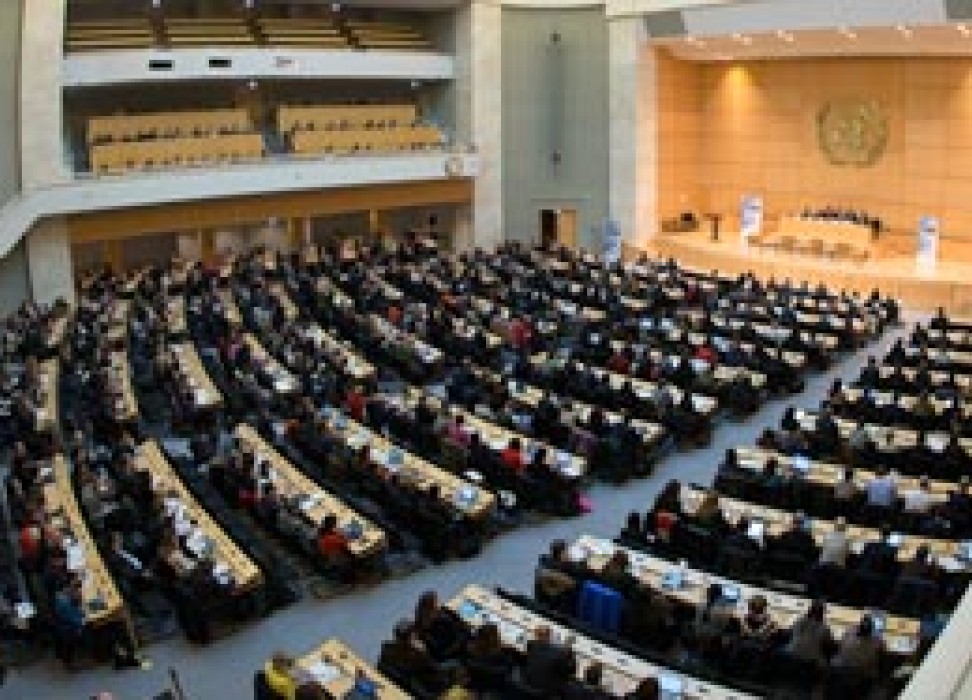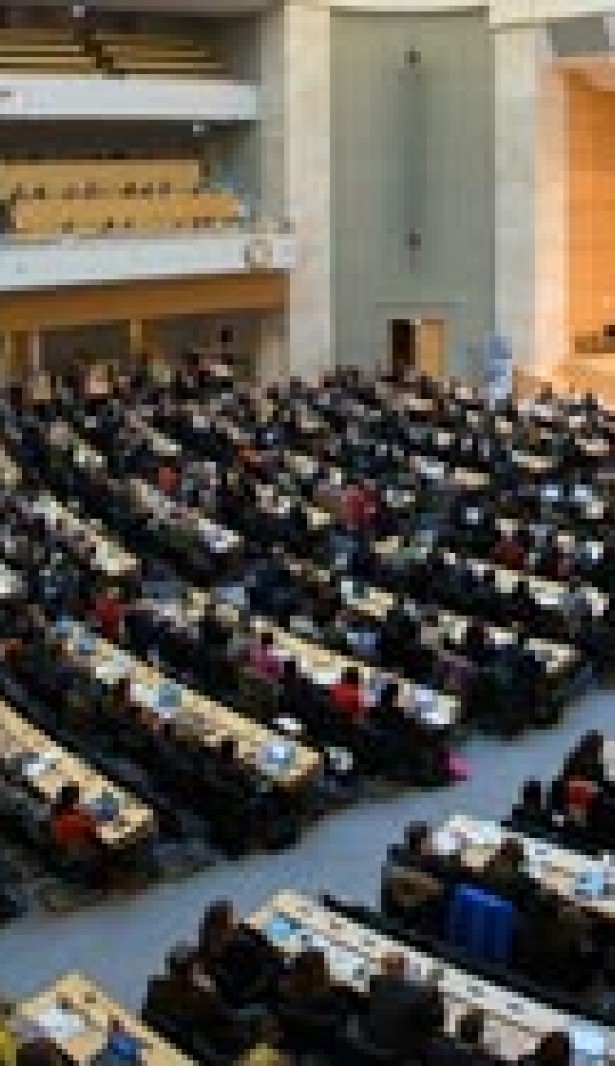Business and Human Rights: Protect rights and provide remedy
05 December 2014

The UN Annual Forum on Business and Human Rights took place in Geneva on 1-3 December with around 2,000 participants drawn from the private sector, government and civil society.
Addressing the Forum UN High Commissioner for Human Rights Zeid Ra’ad Al Hussein, recalled the Bhopal disaster of 1984, which brought into stark relief the need for better human rights protection and accountability.
“The United Nations Guiding Principles on Business and Human Rights provide a roadmap of the actions that both States and companies must take to prevent business-related human rights abuse, and to provide effective remedy and justice,” said the UN High Commissioner for Human Rights.
Sudanese mobile communications entrepreneur Mo Ibrahim, who chaired the Forum, welcomed the increased interest and participation from the business community and called for more robust action to monitor and measure implementation and enhance accountability of both Governments and business.
Ibrahim said, "at least serious business people understand very well sustainability. You can only sustain business, it can only have a long term future if you are really running a decent business which is socially responsible and is taking care of both people and the planet."
The Forum brought together corporate sector chief executives, policy makers from government, international institutions, experts and civil society activists.
Participants heard of success and challenges faced by companies. Unilever’s Chief Executive Paul Polman said “Business is here to serve, not take from society. Its reason for being is to serve society and not what we all too often confuse as shareholder primacy. It is a critical enabler for inclusive economic growth and job creation - which is key to unlocking human potential and reducing poverty.”
Bob Collymore, the CEO of a Kenyan mobile operator, Safaricom, reiterated the importance of addressing human rights for sustainable business.
Collymore said If you look at child labour, it means that children are not getting education “Does this present me with an opportunity or a threat twenty years from now?, he added.
It is clear, it’s not a market opportunity for us, it will be a threat, and therefore we believe we have a role to play,” said Collymore.
Paul Bulcke, CEO of Nestlé, underlined that “human rights is about doing…it is in the actions, on the ground, in the countries where companies operate, where they have their people working for them, where they source their raw materials and link up with societies; where they produce, where they sell their products and services. That’s where human rights are visible and lived”, he said.
The Forum has been gathering momentum in the past years and has become the largest global gathering to discuss progress and challenges in addressing business impacts on human rights. Various sectors were represented including: manufacturing, information and communication technology, mining, oil and energy, agriculture and banking and finance.
During the Forum, civil society activists and victims called attention to the challenges they face and shared their views relating to the Guiding Principles.
Alejandra Ancheita. Executive Director of ProDESC, called for greater accountability saying human rights violations are still taking place in many business premises in various countries in South America. Ancheita has received recognition for her pioneering work to hold transnational corporations to account for their alleged adverse impacts on indigenous rights as well as on land and environmental rights in Mexico.
Sharan Burrow, General Secretary of the International Trade Union Confederation, noted that “for trade unions the UN Guiding Principles on Business and Human Rights are the most significant instrument addressing business behaviour in over 30 years. They resolve questions of great importance to workers - issues of rights and responsibility, obvious to workers and their trade unions but denied too often by corporations and even their governments.”
Pakistani Human Rights Lawyer Hina Jilani, welcoming new commitments expressed by businesses, stressed “we must not forget that it is the fundamental obligation of States to protect against exploitation and deprivation. It is therefore commitments from States we want to hear more about.”
The Forum was established by the UN Human Rights Council and under the guidance of the Working Group on Business and Human Rights.5 December 2014




